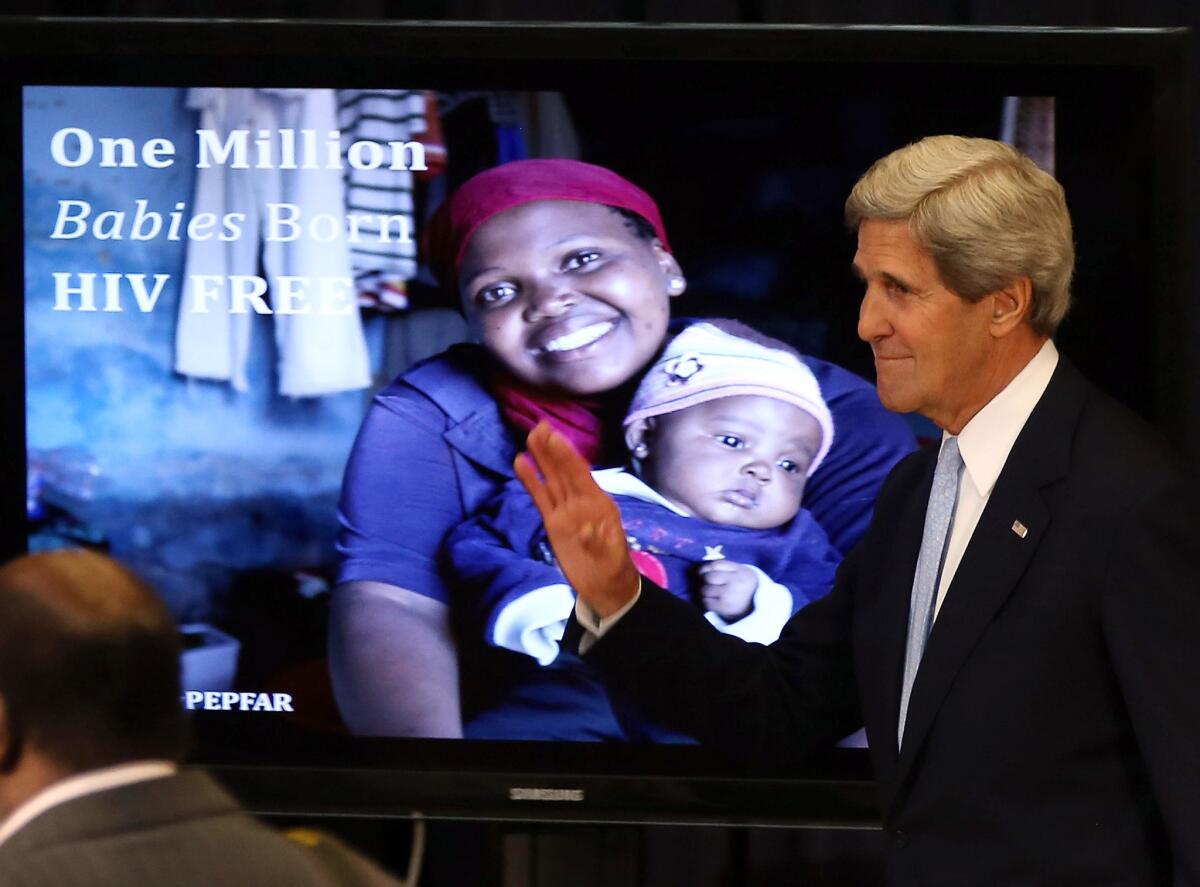U.S. Supreme Court says ‘no’ to forced speech

- Share via
‘He who pays the piper calls the tune” is a familiar piece of folk wisdom, but the Supreme Court rightly reaffirmed this week that it is bad constitutional law. At issue was a 2003 law under which the Department of Health and Human Services and the U.S. Agency for International Development have spent billions of dollars to contain the spread of HIV/AIDs. Nongovernmental organizations that deliver services could not spend federal funds “to promote or advocate the legalization or practice of prostitution or sex trafficking” — a requirement Congress was free to impose. But the law also requires recipients (other than established groups such as the World Health Organization) to have “a policy explicitly opposing prostitution and sex trafficking.”
The latter provision was challenged by groups that argued that if they officially denounced prostitution, it would undermine their efforts to educate prostitutes about AIDS prevention and make it difficult for them to operate in countries where prostitution was legal. They also feared it would chill debate about whether legalized prostitution might help stem the spread of AIDS.
Writing for the court, Chief Justice John G. Roberts Jr. said the requirement went beyond preventing recipients from undermining the program established by Congress. “It requires them,” he said, “to pledge allegiance to the government’s policy of eradicating prostitution.” Roberts’ choice of the phrase “pledge allegiance” was deliberate. In 1943, the court struck down a West Virginia regulation requiring schoolchildren to pledge allegiance to the American flag. Roberts repeated what the court said then: “If there is any fixed star in our constitutional constellation, it is that no official, high or petty, can prescribe what shall be orthodox in politics, nationalism, religion, or other matters of opinion or force citizens to confess by word or act their faith therein.”
In a dissent, Justice Antonin Scalia asserted that Congress was free to award contracts to “those who believe in its ideas.” He suggested that the challenged provision was comparable to a refusal by Congress to enlist Hamas as a channel for U.S. food aid. But, as Scalia noted, one purpose of foreign aid is to foster good will toward the United States, a task for which the anti-American Hamas would be spectacularly ill-qualified. By contrast, the agencies that sought funding for anti-AIDS activities wouldn’t have undermined Congress’ opposition to prostitution by engaging in prevention efforts.
As Roberts conceded, it is sometimes difficult for courts to draw the line between “conditions that define the federal program and those that reach outside it.” But here, Congress went beyond setting rules for how government funds are spent to try to force recipients to renounce their right to free speech. The court was right to rein it in.
More to Read
A cure for the common opinion
Get thought-provoking perspectives with our weekly newsletter.
You may occasionally receive promotional content from the Los Angeles Times.






